by Dwight Furrow
 It might strike you as odd, if not thoroughly antiquarian, to reach back to Aristotle to understand gastronomic pleasure. Haven’t we made progress on the nature of pleasure over the past 2500 years? Well, yes and no. The philosophical debate about the nature of pleasure, with its characteristic ambiguities and uncertainties, persists often along lines developed by the ancients. But we now have robust neurophysiological data about pleasure, which thus far has increased the number of hypotheses without settling the question of what exactly pleasure is.
It might strike you as odd, if not thoroughly antiquarian, to reach back to Aristotle to understand gastronomic pleasure. Haven’t we made progress on the nature of pleasure over the past 2500 years? Well, yes and no. The philosophical debate about the nature of pleasure, with its characteristic ambiguities and uncertainties, persists often along lines developed by the ancients. But we now have robust neurophysiological data about pleasure, which thus far has increased the number of hypotheses without settling the question of what exactly pleasure is.
Part of the problem is that we have this word “pleasure” that seems to apply to any positive affective state, and we therefore think there must be something common to all the diverse experiences designated by the word. But that unity may be an illusion. There is a vast experiential difference between the pleasures of basking in the sun and the pleasure one experiences from having run a marathon. I doubt that Aristotle’s theory can explain the former; the latter seems more amenable to his focus on activities which would include the pleasures of the table. And so I will set aside attempts to define pleasure in general and focus on the pleasure we take in our activities, specifically the activity of eating. Read more »

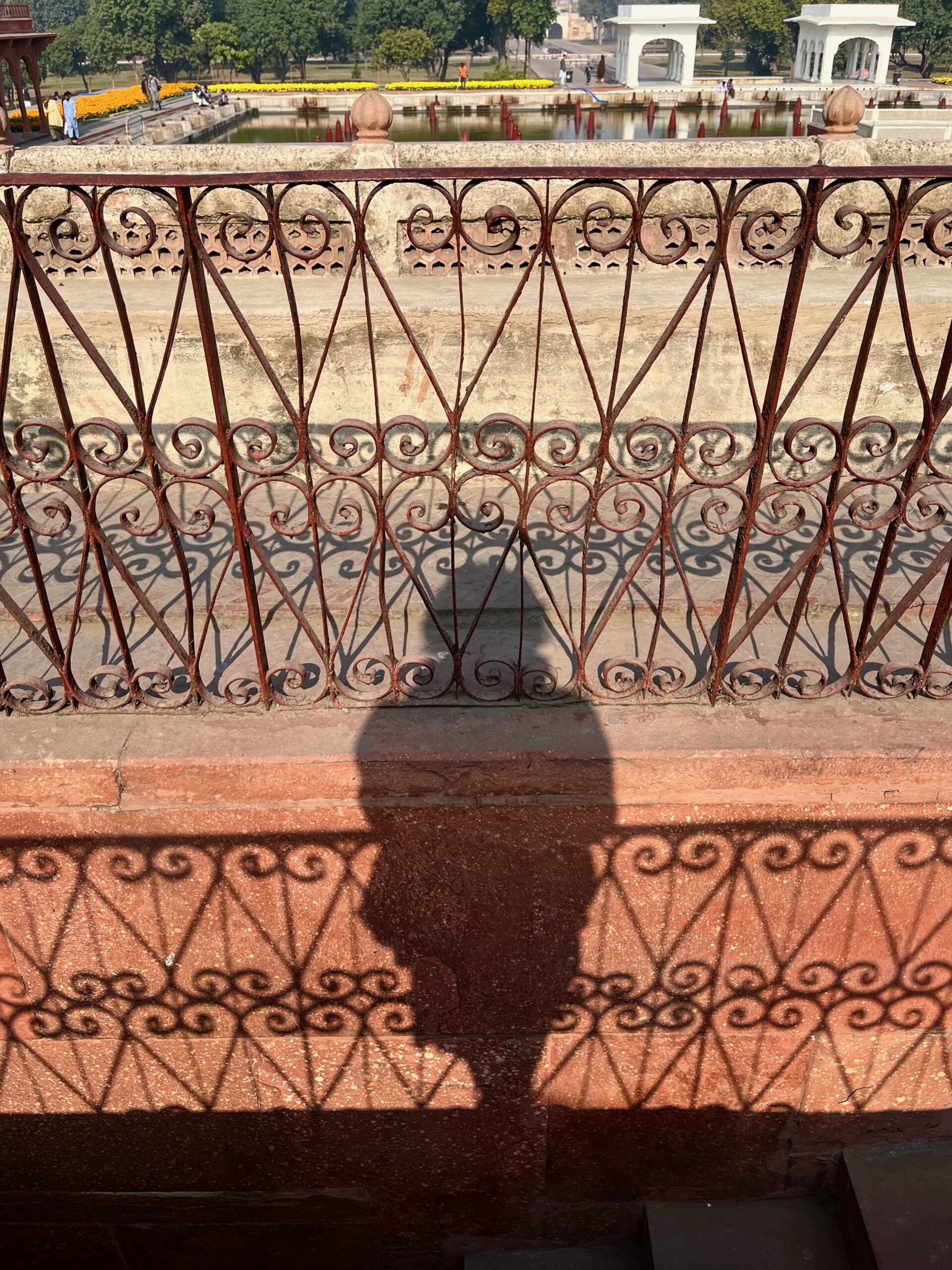 Sughra Raza. Self Portrait in Praise of Shadows. Shalimar Bagh, Lahore, December 10, 2023.
Sughra Raza. Self Portrait in Praise of Shadows. Shalimar Bagh, Lahore, December 10, 2023.
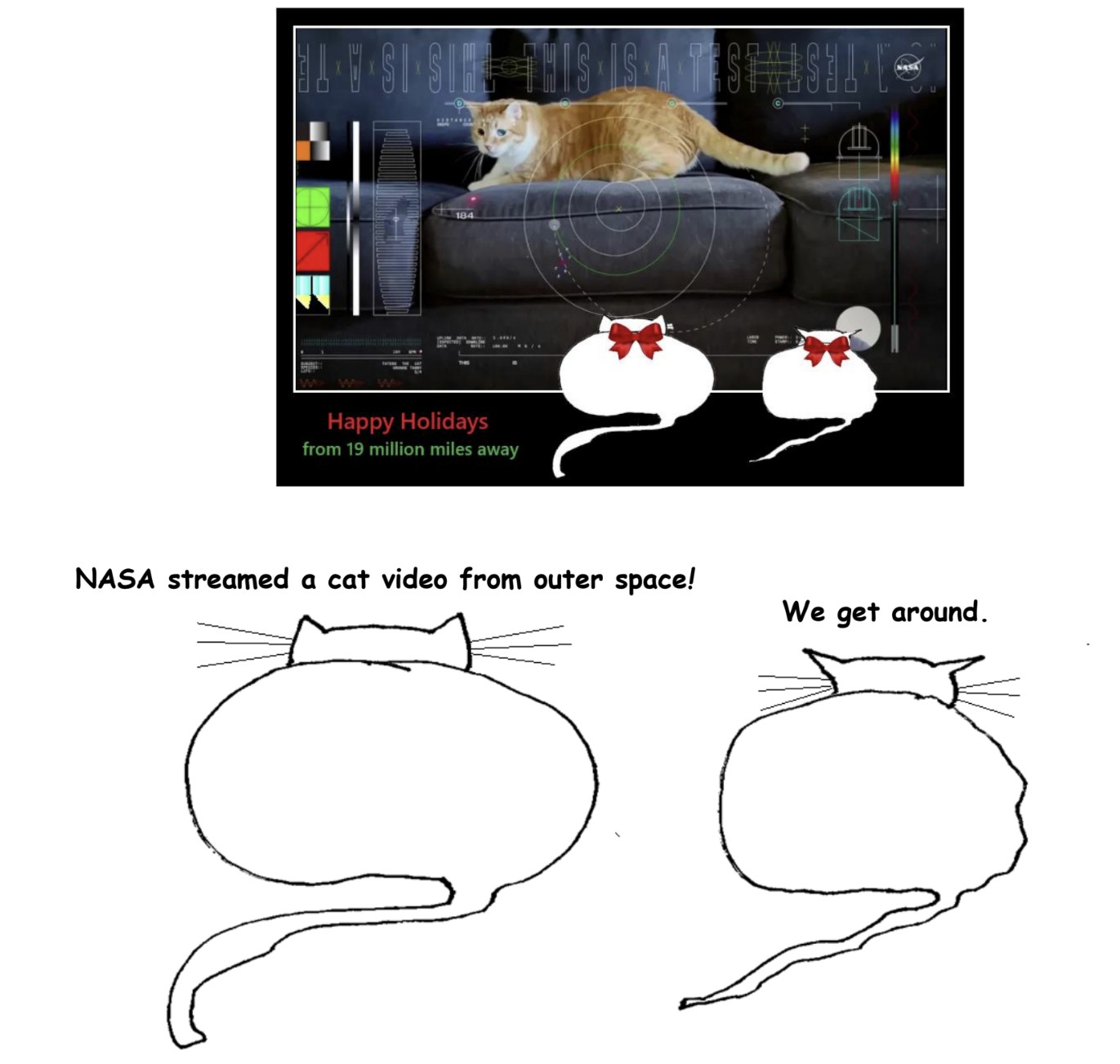
 Andrew Torba, Christian Nationalist founder of the rightwing social media site Gab, recently argued on his podcast that the fact that many of the most beloved Christmas songs were written by Jewish composers was part of a conspiracy to take Christ out of Christmas: to secularize one of the holiest Christian holidays and allow Jews to subtly infiltrate Christian-American culture with their own agenda. He might just be right.
Andrew Torba, Christian Nationalist founder of the rightwing social media site Gab, recently argued on his podcast that the fact that many of the most beloved Christmas songs were written by Jewish composers was part of a conspiracy to take Christ out of Christmas: to secularize one of the holiest Christian holidays and allow Jews to subtly infiltrate Christian-American culture with their own agenda. He might just be right.

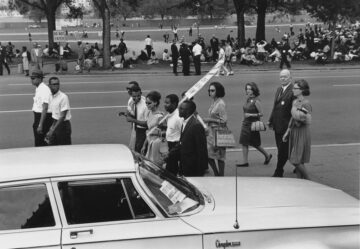
 Any time you walk outside, satellites may be watching you from space. There are currently
Any time you walk outside, satellites may be watching you from space. There are currently  The ongoing horrors unfolding in Israel and Gaza have deep-rooted origins that stem from a complex and contested question: Who has rights to the same territory?
The ongoing horrors unfolding in Israel and Gaza have deep-rooted origins that stem from a complex and contested question: Who has rights to the same territory?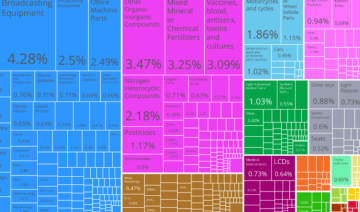 Maria Haro Sly in Phenomenal World:
Maria Haro Sly in Phenomenal World: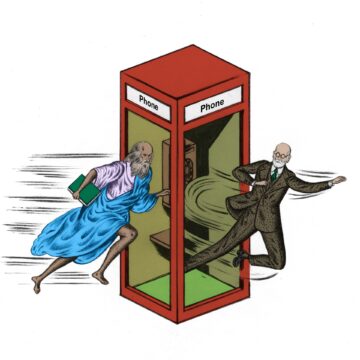 Around five years ago, David—a pseudonym—realized that he was fighting with his girlfriend all the time. On their first date, he had told her that he hoped to have sex with a thousand women before he died. They’d eventually agreed to have an exclusive relationship, but monogamy remained a source of tension. “I always used to tell her how much it bothered me,” he recalled. “I was an asshole.” An Israeli man now in his mid-thirties, David felt conflicted about other life issues. Did he want kids? How much should he prioritize making money? In his twenties, he’d tried psychotherapy several times; he would see a therapist for a few months, grow frustrated, stop, then repeat the cycle. He developed a theory. The therapists he saw wanted to help him become better adjusted given his current world view—but perhaps his world view was wrong. He wanted to examine how defensible his values were in the first place.
Around five years ago, David—a pseudonym—realized that he was fighting with his girlfriend all the time. On their first date, he had told her that he hoped to have sex with a thousand women before he died. They’d eventually agreed to have an exclusive relationship, but monogamy remained a source of tension. “I always used to tell her how much it bothered me,” he recalled. “I was an asshole.” An Israeli man now in his mid-thirties, David felt conflicted about other life issues. Did he want kids? How much should he prioritize making money? In his twenties, he’d tried psychotherapy several times; he would see a therapist for a few months, grow frustrated, stop, then repeat the cycle. He developed a theory. The therapists he saw wanted to help him become better adjusted given his current world view—but perhaps his world view was wrong. He wanted to examine how defensible his values were in the first place.